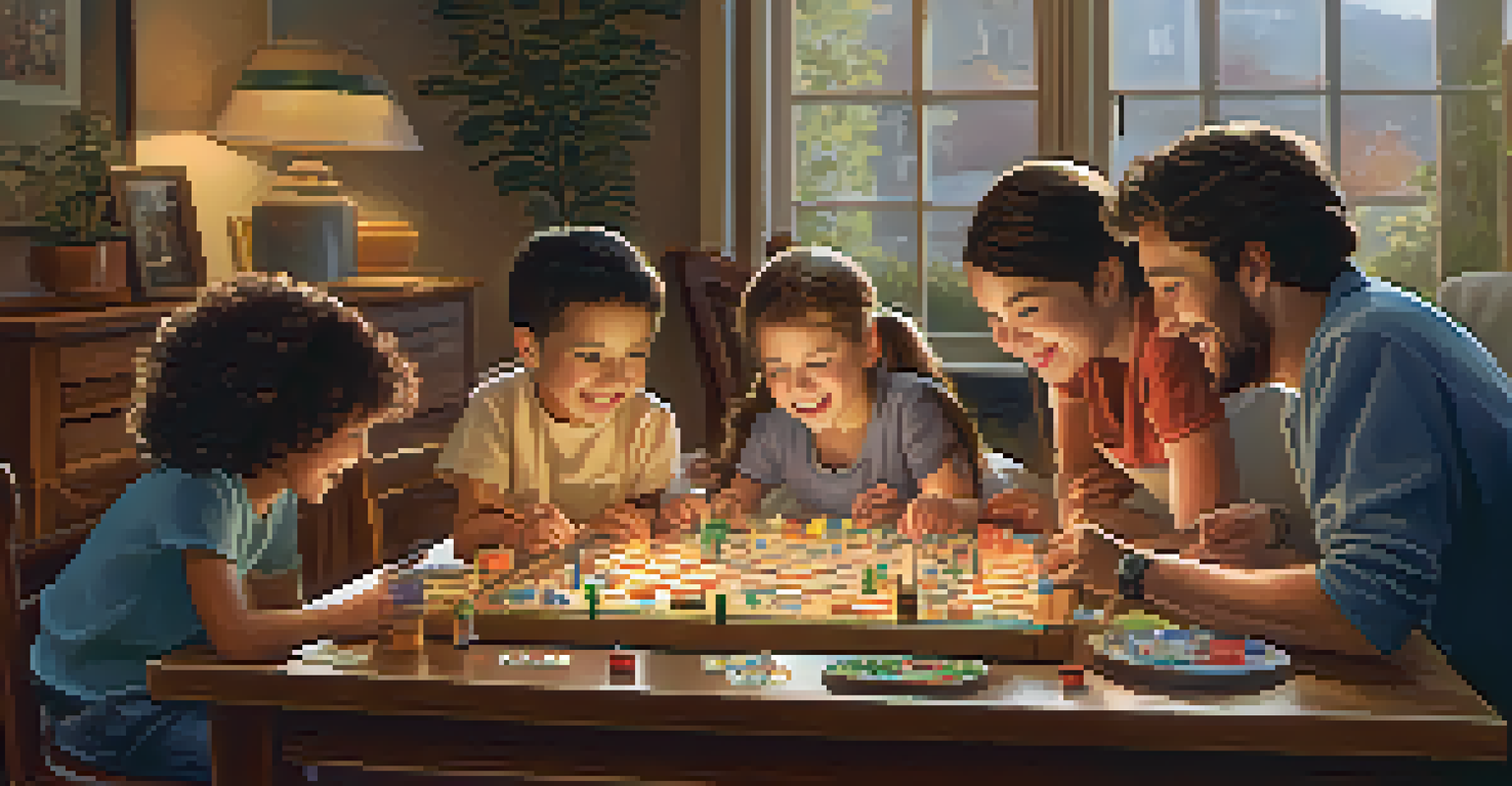Play: A Spiritual Tool for Personal and Collective Growth

Understanding the Essence of Play in Spirituality
Play is often seen as merely a leisure activity, but its roots run much deeper. At its core, play is a vital expression of creativity and freedom, allowing individuals to connect with their inner selves. When we engage in play, we tap into a space where the mind is free from constraints, enabling spiritual exploration and growth.
Play is the highest form of research.
Just like children who lose themselves in imaginative worlds, adults can also benefit from this state of flow. This immersion helps cultivate a sense of presence and mindfulness, essential components in spiritual practices. Play encourages us to let go of expectations, fostering a deeper connection to our authentic selves.
In this way, play becomes a spiritual tool, opening pathways to self-discovery and personal transformation. It invites us to embrace curiosity, spontaneity, and joy, reminding us that life is not just about serious pursuits but also about finding delight in the moment.
The Role of Play in Personal Growth and Self-Reflection
Engaging in playful activities encourages self-reflection and personal growth. When we play, we often confront our fears, insecurities, and limitations in a safe and supportive environment. This process can lead to profound insights about our identities and desires, illuminating paths for future growth.

For example, consider adults participating in improv theater. This form of play not only fosters creativity but also builds confidence as participants learn to trust their instincts. The act of improvisation teaches us to embrace uncertainty and adapt to unexpected situations, skills that are invaluable in our personal lives.
Play Fuels Spiritual Growth
Engaging in playful activities allows individuals to connect with their inner selves and fosters spiritual exploration.
Through play, we can explore different aspects of ourselves, enhancing our emotional intelligence. By understanding our reactions and feelings during play, we gain valuable insights that propel us toward more informed choices in our lives.
How Play Enhances Community and Collective Growth
Play isn't just an individual endeavor; it serves as a powerful tool for community building as well. When groups engage in playful activities, they foster connections and strengthen relationships, creating a sense of belonging. This communal aspect of play can transcend personal growth, leading to collective transformation.
The creation of something new is not accomplished by the intellect but by the play instinct acting from inner necessity.
Think about team-building exercises that incorporate games or outdoor adventures. These experiences not only break down barriers but also encourage communication and collaboration among participants. As individuals learn to work together in a playful context, they develop trust and camaraderie that can enhance their collective efforts.
Moreover, shared play experiences can bridge cultural and generational gaps. By coming together to play, diverse groups can celebrate their differences while finding common ground, illustrating how play can unite us in our shared humanity.
The Science Behind Play and Its Impact on Well-being
Research shows that play has a significant impact on our mental and emotional well-being. Engaging in playful activities releases endorphins and reduces stress, promoting overall happiness. This biological response underlines why play is essential not just for children but for adults as well, as a means of maintaining balance in our lives.
Furthermore, studies suggest that play can enhance cognitive function, improving problem-solving skills and creativity. This is particularly important in today's fast-paced world, where the ability to think outside the box is highly valued. By incorporating play into our daily routines, we can stimulate our minds and foster a more adaptable approach to challenges.
Community Bonding Through Play
Play serves as a powerful tool for building connections and strengthening relationships within communities.
In essence, play is not just a luxury but a necessity for our well-being. It acts as a counterbalance to the pressures of life, allowing us to recharge and reconnect with ourselves and our communities.
Integrating Play into Daily Life for Spiritual Growth
Incorporating play into our daily lives doesn't require a complete overhaul; it can be as simple as infusing joy into mundane tasks. Whether it's turning chores into fun challenges or finding playful ways to connect with loved ones, the key is to remain open to spontaneity. This shift can significantly enhance our spiritual journey.
Consider setting aside time for activities that spark joy, such as art, music, or outdoor adventures. These moments of play can serve as mini-retreats, allowing us to reconnect with our passions and desires. By prioritizing these experiences, we cultivate a sense of gratitude and fulfillment that enriches our spiritual practice.
Ultimately, the goal is to create a lifestyle that honors play as an essential component of personal and collective growth. By making play a priority, we can nurture our spirits and enrich our connections with others.
Challenges and Barriers to Embracing Playfulness
Despite the numerous benefits of play, many people face challenges in embracing it fully. Societal norms often prioritize productivity and seriousness, leading individuals to feel guilty about taking time for play. This mindset can stifle creativity and hinder personal growth, creating a barrier to spiritual exploration.
Moreover, as we grow older, we may internalize beliefs that play is solely for children. This misconception can prevent us from engaging in activities that foster joy and connection. Overcoming this barrier requires a conscious effort to redefine play and its place in our lives.
Play Enhances Well-being
Research indicates that play significantly boosts mental and emotional well-being, promoting happiness and reducing stress.
To combat these challenges, it's essential to create supportive environments that encourage playfulness. By surrounding ourselves with like-minded individuals who value play, we can foster a collective mindset that embraces joy and spontaneity, allowing us to reclaim the power of play as a spiritual tool.
The Future of Play as a Spiritual Practice
As we look to the future, the role of play in spirituality is likely to evolve even further. With the rise of mindfulness practices and holistic approaches to well-being, play can seamlessly integrate into these frameworks. It offers a dynamic way to connect with ourselves and others while fostering a sense of community.
Additionally, as technology advances, new forms of play are emerging, enabling us to explore spirituality in innovative ways. Virtual reality experiences, for instance, can create immersive environments for spiritual exploration and collective engagement. These advancements can bridge gaps and create shared experiences in ways we never thought possible.

Ultimately, the future of play as a spiritual practice lies in our willingness to embrace it. By continuing to prioritize play and its benefits, we can cultivate a richer, more fulfilling spiritual journey for ourselves and our communities.